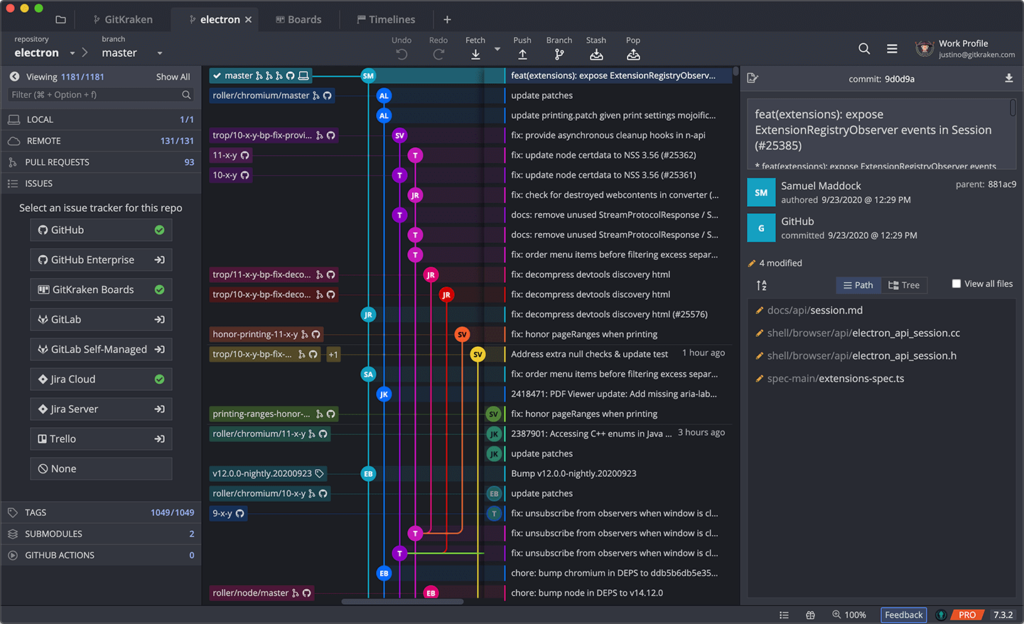While great progress has been made bridging the gap between developers and operations engineers, there are fundamental differences in the roles and responsibilities, alignment, and access to information that continues to hinder further progress.
Everyone is familiar with the DevOps infinity loop: this is an ideal workflow where every stage of the software development lifecycle (SDLC) feeds into the next. While the philosophy is well understood, organizations have worked on bringing developers and site reliability engineers (SREs) closer together under the DevOps banner.
The reality is, most of the time, the DevOps infinity loop, or the DevOps workflow, is broken. Developers continue to focus on building features without the benefit of data-driven insights that can be provided by production data. Developers often “push and pray” without having a full understanding of how their changes will affect performance and user experience. As a result, companies miss the opportunity to improve products faster and delight the customer sooner.
DevOps is Failing
According to Gartner, 90% of DevOps initiatives will fail to fully meet expectations. And yet, the Global DevOps Market size, which accounted for $7.3 billion in 2021, is expected to reach $37 billion by 2030. So to summarize, we’re all spending billions of dollars on the implementation of initiatives that are expected to fail in some meaningful way 90% of the time.
The question is: What in the DevOps workflow is failing, and what can be done about it?
DevOps Workflow Tools
As the DevOps toolchain continues to expand, collaboration across tools is difficult, and success depends on your organization’s ability to simplify and automate while achieving alignment. Developers use a variety of tools from various vendors in their daily work.
The most widely used DevOps tools are VS Code from Microsoft, Jira from Atlassian, and Slack from Salesforce. The code hosts include GitHub, GitLab and Bitbucket. Bridging the gap are CI/CD vendors such as Jenkins and CircleCI.
GitKraken builds legendary Git tools for the DevOps workflow that integrate with tools most developers are already using. GitKraken Client helps developers visualize repositories hosted on GitHub, GitLab, Bitbucket, and Azure DevOps; GitLens adds important information about your project in VS Code; and Git Integration for Jira reduces context switching and streamlines communication for developers and project managers.
Operations engineers typically rely on other vendors for their daily work, such as New Relic, Datadog, and Dynatrace. So how do we ensure that all stakeholders in the SDLC have access to all the relevant information at the same time, understand the objectives and get an integrated perspective of the different inputs and workstreams independently of what tools they use?
How to Fix the DevOps Workflow
There are three essential areas that DevOps initiatives must tackle in order to create alignment, collaborate successfully and streamline DevOps workflows.
- Collaboration. The first step is good collaboration. Most organizations rely on Slack or MS Teams for this purpose, but both are suboptimal when it comes to collaborating on code and incidents that point to code. Having code and data at the center of DevOps collaboration ensures that everyone has access to the information needed to tackle issues, reducing and even eliminating differences of opinion in the process.
- Visibility. Ops engineers and developers must have visibility into the performance of applications across the entire tech stack. These three barriers can occur in different aspects of an organization’s operations, and their impact can limit the team’s ability to deliver value to the customer just as much as DevOps workflow inefficiencies. Visibility helps the organization reach alignment on common objectives.
- Context Switching. Given the number of processes and tools involved in a successful DevOps implementation, it’s important to work towards the reduction of context switching and the integration of tools within established DevOps workflows. The ability to integrate collaboration, tracking, history and observability into a single pane of glass can greatly improve clarity and time to resolution.
For DevOps teams, increased velocity and transparency are always worthwhile pursuits. However, it’s important to not maintain a myopic focus on DevOps workflows when other nagging problems could be hiding in plain sight.
By making a commitment to production telemetry, developer teams can adopt an objective, data-driven approach to software engineering — saving time and avoiding potentially misguided approaches based on opinions rather than facts. Visibility, transparency and velocity can help engineering teams to meet ever-increasing requirements and provide the best possible business outcomes for their organization.
If you’re using Git Integration for Jira to streamline your DevOps workflow, take it one step further with CI/CD for Jira, allowing you to view build and deployment data directly in Jira.
 GitKraken MCP
GitKraken MCP GitKraken Insights
GitKraken Insights Dev Team Automations
Dev Team Automations AI & Security Controls
AI & Security Controls